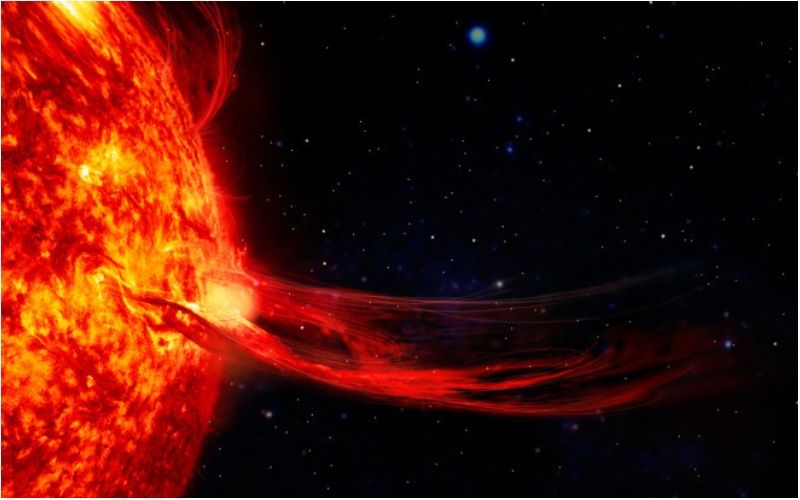ALERT! Geomagnetic Storm Likely To Hit Earth TODAY, Can Cause Power Outage-READ BELOW TO KNOW MORE!
During geomagnetic storms, there are ejections of coronal mass, tons of plasma with its embedded magnetic field - from the Sun towards Earth.

Earthlings are likely to witness a storm originating from the Sun and as per the latest reports, it might hit the Earth on August 3, cautioned the United States National Oceanic and Atmospheric Administration (NOAA). However, Earthers can sigh a breath of relief, as the solar storm will be weak but it can be a catalyst to satellite disruptions and power grid failures, the agency said as quoted by The Independent.
In scientific terms, such conditions are known as geomagnetic storms and they occur when there are ejections of coronal mass, tons of plasma with its embedded magnetic field - from the Sun towards Earth.
According to NASA, the solar magnetic field "interacts strongly" with the Earth's "oppositely oriented magnetic field".
"The Earth's magnetic field is then peeled open like an onion allowing energetic solar wind particles to stream down the field lines to hit the atmosphere over the poles," the American space agency said. "At the Earth's surface, a magnetic storm is seen as a rapid drop in the Earth's magnetic field strength."
When geomagnetic storms occur, there is local heating in Earth's upper atmosphere.
"(This causes) extra drag on satellites in low-earth orbit," according to NOAA (National Oceanic and Atmospheric Administration). "The local heating also creates strong horizontal variations in the ionospheric density that can modify the path of radio signals and create errors in the positioning information provided by GPS."
The reports also stated that the geomagnetic storm also causes disruptions in navigation systems and causes "harmful geomagnetic induced currents (GICs)" in the power grid and pipelines," it added.
Meanwhile, NASA (National Aeronautics and Space Administration) has cautioned that solar activity is going beyond predictions even though the peak in the present solar cycle is yet to arrive.
"Solar events will continue to increase as we near solar maximum in 2025, and our lives and technology on Earth, as well as satellites and astronauts in space, will be impacted," it said in a blog post last week.
Image Source: Astronomy Magazine











